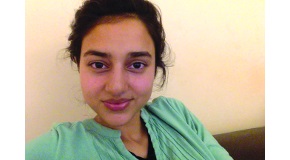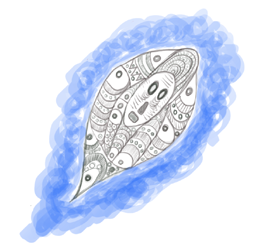
BY AFSHAN NABI (MBG/III)
afshan.nabi@ug.bilkent.edu.tr
“Do you want to become an old man, filled with regret, waiting to die alone?”
– “Inception”
The only connection between the world and us is our senses. Our brain is in the darkness of our heads; the only way for it to feel the world outside is through the senses. We turn our gaze up toward the bright blues of the skies and down to first green grass of spring. We run our fingers through the softness of this grass while feeling the warmth of the sun on our back. We hear someone speak and smile in response. The smell of chicken cooking wafts over from Speed, and we take a deep breath. We sip from our Bilka tea; its taste is not fantastic, but with the goodness reaching us from all our senses, it does somehow contribute to the richness of life.
Without these senses, we would live in perpetual darkness and silence. Do you think we could imagine the taste of well-cooked chicken if we had never smelled or tasted it? Could we conceive how blue the sky can be if we had never seen it? Without senses, we would be unresponsive as stones. And our lives would be proportionally exciting. The brain makes sense of all the data it receives from our senses, but without our senses functioning properly, it cannot get enough information to, say, un-blur the face of a distant person or understand the meaning of some whispered sounds.
In a way, our senses are threads that connect us to the world. 
With every little loss of our senses, one of the threads linking us to the world is slashed. For instance, when your eyesight weakens, people become silhouettes. You see a world of fuzzy figures until they are within a few feet of you. Within your shrunken radius of vision, you can resolve these profiles into faces of people you know. You can recognize their smiles, or the look in their eyes that tells you important things. But when they are outside that radius of normal vision, your mind has to reinforce the 240p image coming from your eyes with your previous experiences with this person in particular as well as with other people in general to understand what is happening. You are concentrating a lot of your mental resources on getting a complete visual input, but this takes away some of the mental capacity devoted to comprehension. This in turn affects your ability to respond appropriately. You struggle with tasks that used to be simple. Did I say “Hi” properly? Did I come across as cold because I did not see their smile and smile back? Did I miss a nod of the head and so not nod back? You struggle. Even if you did respond appropriately, the nagging suspicion that you missed some cues does not leave you. You feel tight, stretched, wrought thin, awkward, and a little lost. It is hard to concentrate on the world when you are fighting a losing battle with your senses, with yourself. A thread connecting you to the world has been slashed, and the world recedes a little, away from you.
It does not end there. Old people who have lost multiple senses have had many more connections with the world severed. They must constantly be fighting themselves, brains whirring to try to make sense of the world without accurate seeing, hearing, smelling, tasting and touching abilities. But their energy levels have declined as well. There is only so much that the brain can compensate for. And so, with every passing day, more threads linking them to the world are broken. As a result of the fading senses and decreasing energy levels, they are limited to their heads, unable to experience the world outside. They are trapped in a bubble of decreasing radius. The distance between them and the world grows, and the light at the end of the tunnel grows dimmer. They find themselves reaching out, trying to walk toward the light, but are pulled farther away. The world retreats with frightening rapidity. They become aware that this struggle is leading to a day when the distance between them and the world will become too large to be bridged and the light at the end of the tunnel will disappear completely.
